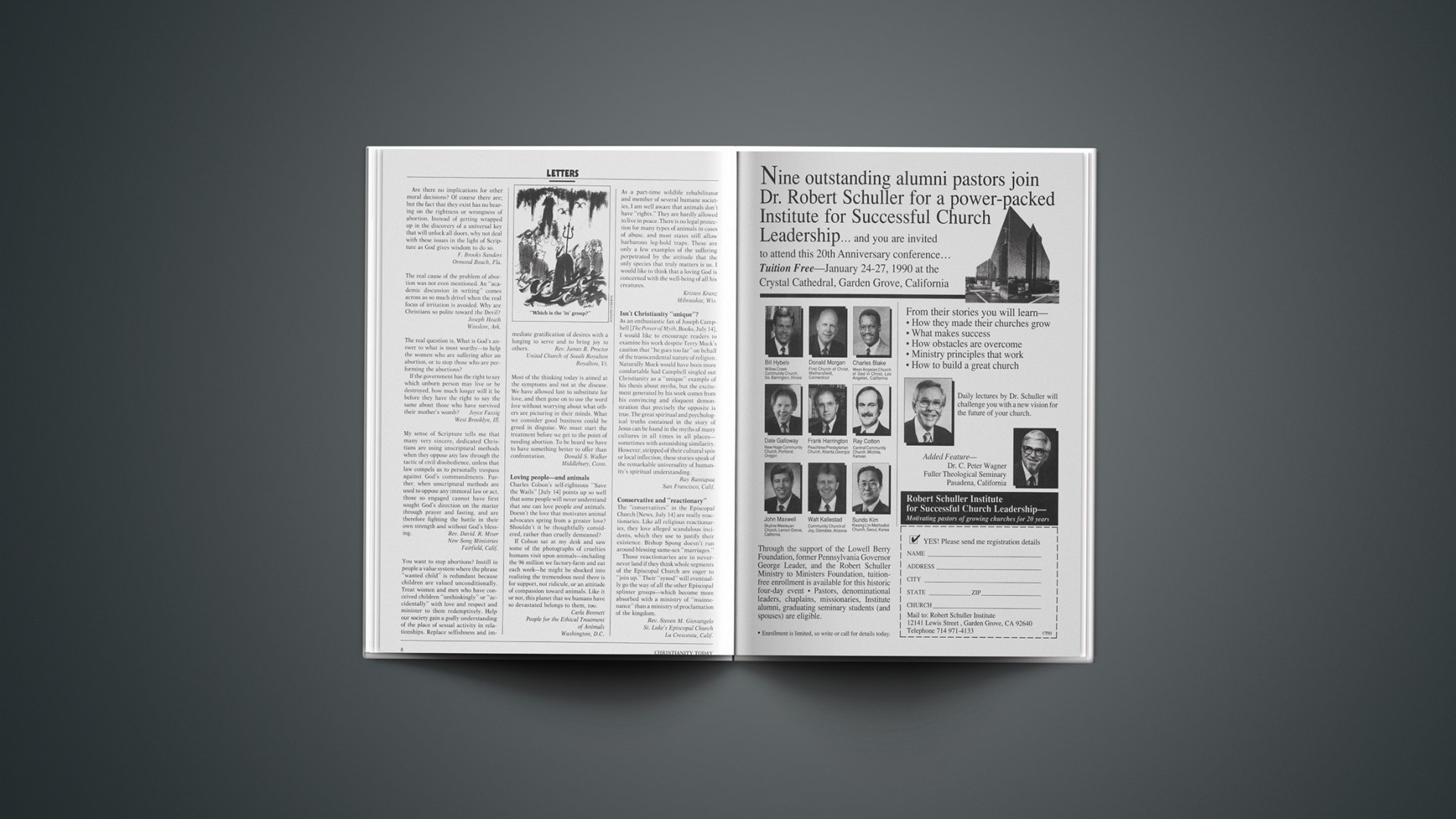It has been two months since the Supreme Court ruled that Americans have the right to burn our flag, but I still can’t feel right about it.
Like you, I have heard the arguments: This ruling affirms the freedom of free speech and dissent; and, for Christians, it puts in proper perspective our allegiances to the “city of God” (an ultimate, eternal loyalty) and the “city of man” (a relative, temporal loyalty).
These are good points, I suppose. We should indeed honor our hard-won freedom of speech and recognize our status as mere pilgrims in this world.
But true as these arguments are, in this case they don’t convince. Most of us have such a visceral reaction to seeing our flag burned that I’m not surprised at the hullabaloo the decision caused.
This issue typifies two of the most profound weaknesses of modern culture: a growing inability to appreciate the meaning of the symbolic and the importance of the commonweal.
A symbol is something that stands in the place of something else, usually a group of ideas difficult to sum up in a concise way. Flags, logos, maxims, people, even material objects can all be symbols standing for larger ideals. Once a symbol is established in the minds of people, it becomes part and parcel of the ideas it stands for. Attack the symbol and you attack the ideas.
For over 200 years the flag of the United States has stood for a system incorporating representative government, individual liberty, free speech, freedom of religion, and separation of church and state. It includes also the structures and laws that promote and protect that system of ideas. An attack on the flag is an attack on those ideas.
Yet the Supreme Court seems to be saying that not to allow attacks on the symbol is an attack on the ideas also. Free speech, they say, suffers if free speech cannot be attacked.
I suppose there is some technical merit to this argument. But I think it overlooks the importance symbols play in the minds of us all: by some curious quirk of how we are made, symbols represent more than the concrete facts, but also the histories, intangible meanings, and emotions of the individual elements they represent. The flag represents more than the hundred or so clauses that make up the Constitution, the Bill of Rights, and the Declaration of Independence. It represents also 200 years of history, millions of Americans who have fought and died for their country, achievements of creative genius, sacrifices both known and unknown, commitments to principle—in short, a whole way of life. An attack on the flag is an attack on what we are, not just as individuals, but as a group of people committed to a common cause and sharing a common history.
It is not surprising that five Supreme Court justices do not understand this—or if they do they assign it a low priority. We live in an age devoted to the scientific method. If it can’t be measured, it ain’t true. If it can’t be understood, it isn’t important. If it’s mysterious, it’s religious hokum.
The importance of the flag goes beyond its red, white, and blue colors, its 13 stripes and 50 stars. It even goes beyond its international status as a sign of America. Its importance to Americans cannot be measured, cannot be fully understood, and there is an element of mystery about why standing in a baseball park, listening to the “Star Spangled Banner” and watching a piece of cloth hoisted high above us all brings out the goose bumps.
But it does. The flag represents a commitment to the commonweal, the good of the people, the family, and, ultimately, ourselves. The “right” to bum the flag signifies more than anything else a lack of commitment to work together for the good of many, even when it inconveniences us.
It is sad that we have become a people so committed to individual satisfactions and rights that we are no longer able to see the community-building importance of our symbols and commitments to the common good.
That is what the flag stands for. And when we say it is okay to burn it, we have lost one more way of saying to one another that these things are important.
TERRY C. MUCK










